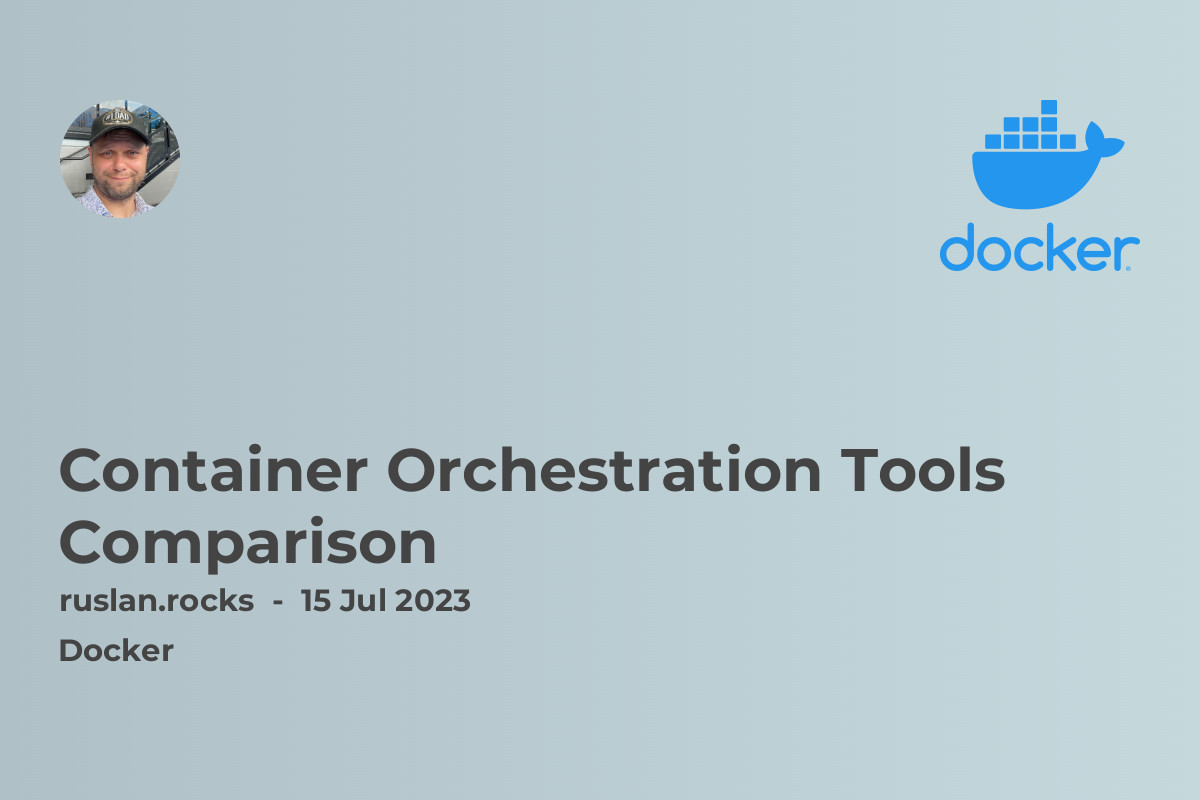
Container orchestration is a critical aspect of managing containerized applications and ensuring their scalability, availability, and performance. In this article, we will compare and contrast some popular container orchestration tools, namely Kubernetes, Docker Swarm, Nomad, and Apache Mesos, to help you choose the one that best fits your needs.
Kubernetes
Kubernetes is the most widely used container orchestration tool, known for its extensive feature set and strong community support. It provides automated deployment, scaling, and management of containerized applications. With its declarative configuration and self-healing capabilities, Kubernetes ensures maximum availability and fault tolerance. It also offers robust networking and service discovery mechanisms, allowing containers to communicate seamlessly.
Docker Swarm
Docker Swarm is an easy-to-use and lightweight container orchestration solution provided by Docker. It enables users to create and manage a swarm of Docker nodes, forming a Docker cluster. The cluster operates as a single entity, making it easy to deploy and manage containers across multiple hosts. Docker Swarm integrates well with the Docker ecosystem and offers good compatibility with existing Docker workflows.
Nomad
Nomad, developed by HashiCorp, is a flexible and lightweight container orchestration tool designed for both containers and non-containerized workloads. It supports a wide variety of application types and provides the ability to automate the deployment and management of complex applications across multiple infrastructure platforms. Nomad offers a simple and intuitive user interface and can be easily integrated with other HashiCorp tools.
Apache Mesos
Apache Mesos is an open-source distributed systems kernel that provides resource isolation and sharing across cluster nodes. It enables efficient resource utilization and supports the deployment and management of various workloads, including containers. Mesos offers a highly scalable and fault-tolerant architecture and allows multiple container orchestration frameworks, including Marathon and Kubernetes, to run on top of it.
Comparison
Let's compare these container orchestration tools based on various factors.
Scalability and Performance
Kubernetes, with its extensive scalability features like horizontal pod autoscaling and cluster scaling, can handle large-scale deployments effectively. Docker Swarm also supports scaling, but it is more suitable for smaller deployments. Nomad and Mesos offer good scalability but may require additional setup for specific use cases.
Ease of Use
Docker Swarm's simplicity and seamless integration with Docker make it the easiest to set up and get started with. Kubernetes requires more configuration and management overhead but offers a more feature-rich environment. Nomad provides a user-friendly interface and simple configuration, while Mesos requires more advanced knowledge and expertise.
Community Support and Ecosystem
Kubernetes has a vast and active community, resulting in a rich ecosystem of tools, extensions, and resources. Docker Swarm benefits from the popularity of Docker, but its ecosystem is more focused on containerization than orchestration. Nomad and Mesos have smaller but active communities, with a growing ecosystem of plugins and integrations.
Compatibility
Kubernetes is widely supported by various cloud providers and works well with different container runtimes, including Docker and containerd. Docker Swarm, being Docker's native orchestration solution, seamlessly integrates with other Docker components. Nomad and Mesos are both compatible with multiple container runtimes and support various workload types.
Use Case Flexibility
Kubernetes, with its extensive feature set and flexibility, is suitable for a wide range of use cases, from simple web applications to complex microservices architectures. Docker Swarm is particularly well-suited for smaller deployments, development environments, and organizations already invested in the Docker ecosystem. Nomad and Mesos are more general-purpose and offer flexibility in managing different workloads.
Read this article on managing microservices with Docker Swarm and Kubernetes
In conclusion, choosing the right container orchestration tool depends on your specific requirements, deployment size, and familiarity with the tools. Kubernetes is a powerful and feature-rich option for managing large-scale deployments, while Docker Swarm provides simplicity and ease of use. Nomad and Mesos offer flexibility and compatibility with diverse workloads. Evaluate your needs and explore the features, community support, and ecosystem of each tool to make an informed decision.
Explore further on the advantages and disadvantages of container orchestration
Now that you have a better understanding of container orchestration tools, you can choose the one that best aligns with your requirements and start managing your containerized applications efficiently.
